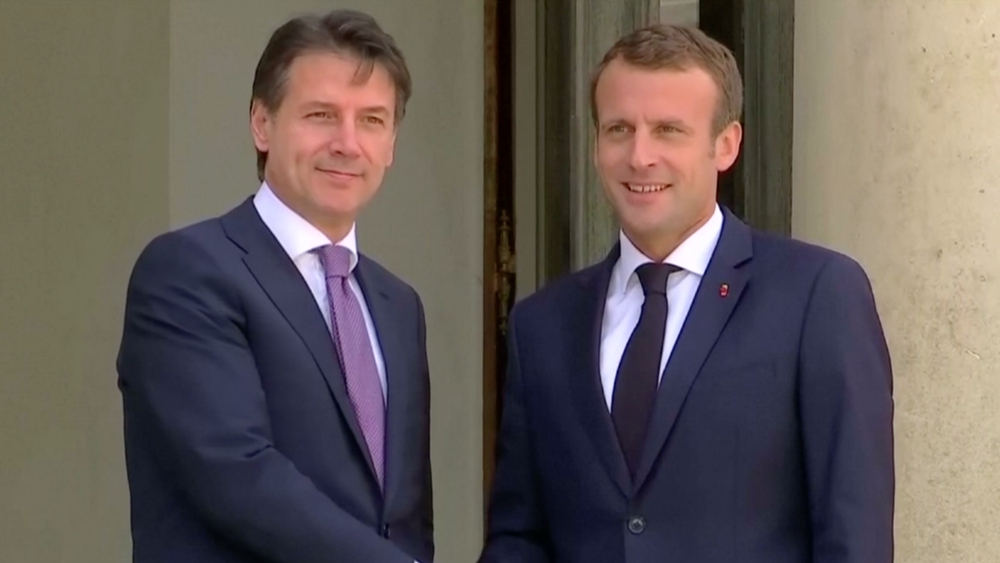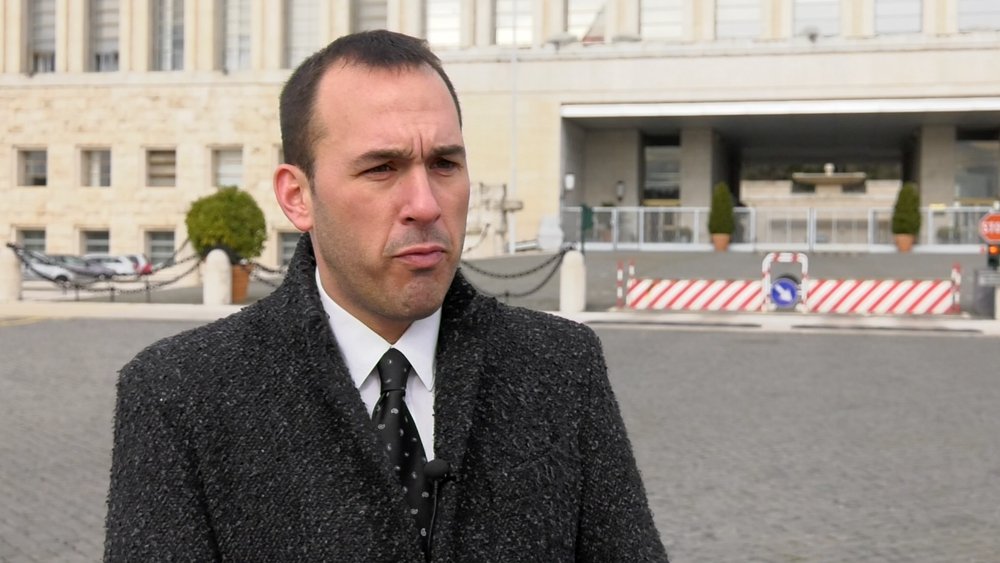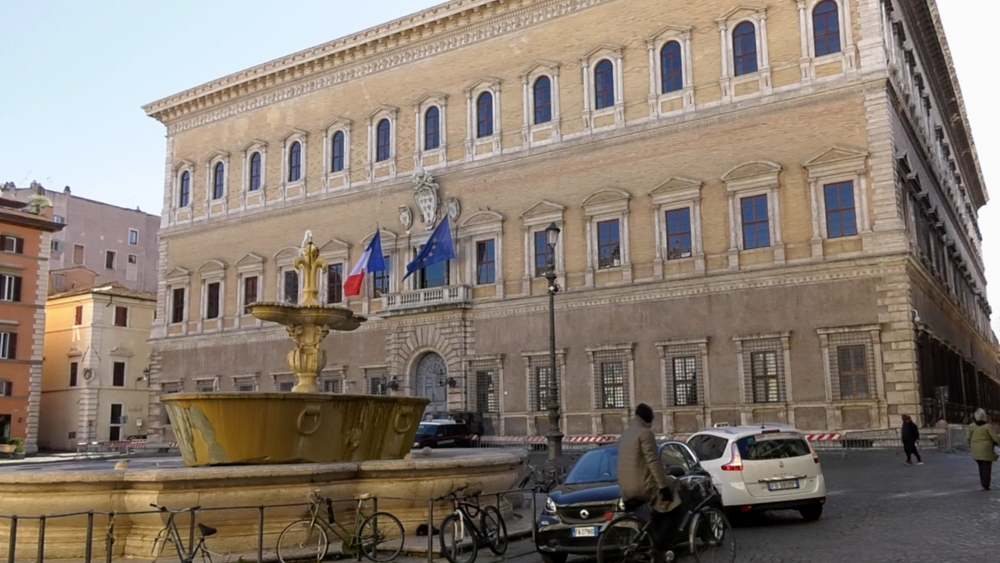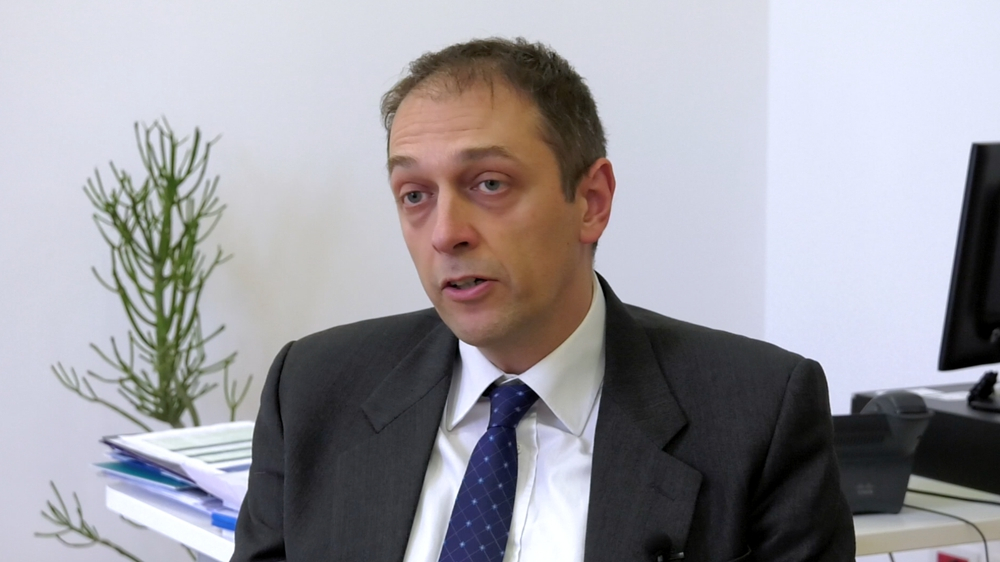
Europe
12:25, 28-Feb-2019
France and Italy: Frenemies?
Michal Bardavid

France and Italy are EU countries that both cooperate and compete. One might call them frenemies.
Tensions between allies France and Italy have been high since the formation of Italy's government in June 2018. The diplomatic row between Italy and France has deepened over the last few months, with leaders from both sides expressing distaste for the other.
A meeting in early February between the leader of the Five Star Movement, Italy's Deputy Prime Minister Luigi Di Maio, and leaders of the French protest group, the Yellow Vests, only made matters worse. France temporarily recalled its ambassador to Italy, something that had not happened since World War Two.

Manilo Di Stefano, member of Five Star Movement and state undersecretary of foreign affairs. /CGTN Photo
Manilo Di Stefano, member of Five Star Movement and state undersecretary of foreign affairs. /CGTN Photo
Manlio Di Stefano, member of the Five Star Movement and Italian parliament, explains that his party "wanted to meet them in order to understand if they are willing to move from this movement made by rage and protest to something political." His own party transitioned in this fashion 10 years ago. It was something similar but without any violence, he noted. Di Stefano added that they understood the meeting was a mistake when they realized the Yellow Vests had too many leaders.
According to some EU experts, the two countries disagree on many levels.
Raffaele Marchetti, Deputy Rector for Internationalization at Luiss University, described some of the issues including migration, industrial issues, and French companies buying Italian companies and vice-versa. "It's microeconomic issues, about the microeconomic management of the European Union. It's political in the sense of how Europe should be run, so it's really multidimensional on many issues," he said.

French embassy in Rome. /CGTN Photo
French embassy in Rome. /CGTN Photo
Migration has been a critical point of conflict between European countries. The new Italian government has strong anti-immigration policies.
Di Stefano said that members believe EU countries should get to the root of the problem and also be aware of their own responsibilities. "If you really want to tackle the issue at a European level, we have to start looking at ourselves, there's also Italy inside. I mean we have huge companies that are in some way exploiting resources in Africa, but if you look at the Brits or France or even Germany, they are doing the same or even more," he said.
He believes there need to be more conversations about the root causes of the issues, including political and economic control of European interests in Africa. Di Stefano believes France should be requested to take a step back from this situation at a European level.
Rome and Paris cooperate on many levels, including intelligence, security and culture, but their differences have been highlighted lately.

Raffaele Marchetti, deputy director for internationalization at Luiss University. /CGTN Photo
Raffaele Marchetti, deputy director for internationalization at Luiss University. /CGTN Photo
Some experts believe the recent disputes are opportunity-driven tensions.
"It's obvious that both take advantage of this tension, both by Italy's Five-Star Movement and the League, obviously for them it's good to be the antagonist of the old Europe, of the mainstream Europe, but the same is for Macron. For him it's very good to present himself as the alternative, the last bastion to keep Europe, European values, against the anti-establishment movement," Marchetti said.
Though experts expect tensions to continue at least until the EU Parliamentary elections in May, both sides have made an effort to reconcile.
For example, the French ambassador has returned to Rome and the Italian president has accepted an invitation to visit Paris.

SITEMAP
Copyright © 2018 CGTN. Beijing ICP prepared NO.16065310-3
Copyright © 2018 CGTN. Beijing ICP prepared NO.16065310-3